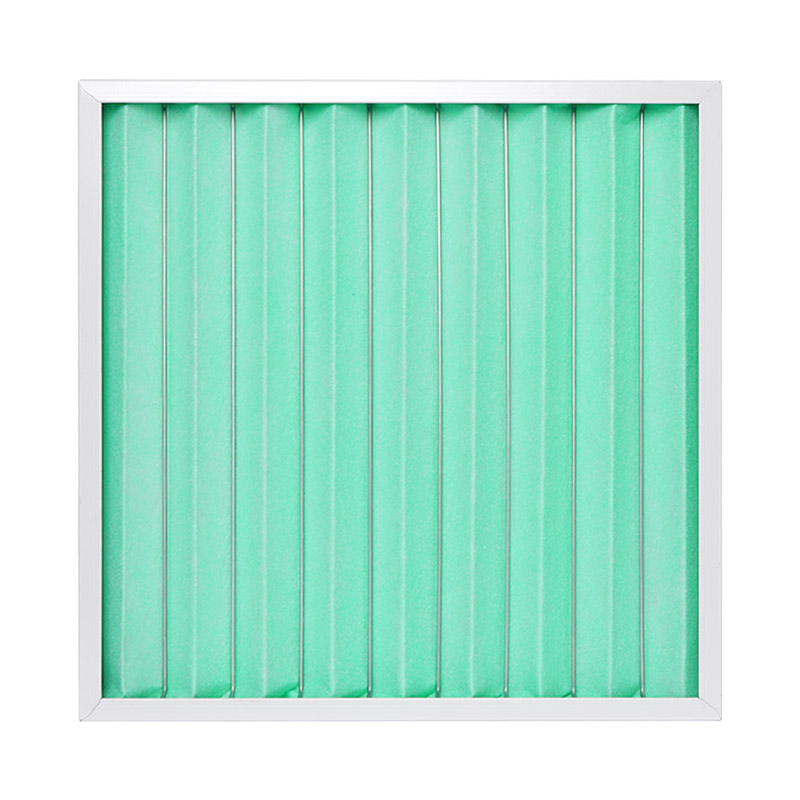In any industrial setting, controlling dust and airborne particles is critical for both the health of workers and the longevity of equipment. Coarse Dust Filters, which are designed to capture larger particles, play a key role in maintaining air quality and preventing damage to machinery. These filters are widely used across various sectors such as manufacturing, aerospace, and energy production. Let's explore the benefits of Coarse Dust Filters, backed by real-world examples and data that illustrate their impact.

Enhancing Particle Capture Efficiency
The primary function of coarse dust filters is to capture larger airborne particles that can cause significant wear and tear on both machinery and the environment. These filters are designed to remove dust particles typically ranging from 5 to 10 microns in size.
For instance, the Environmental Protection Agency (EPA) reports that filters with a MERV (Minimum Efficiency Reporting Value) rating of 6-8 are effective at capturing up to 80% of coarse dust particles. This level of filtration ensures that larger particles—such as sawdust, pollen, and dirt—do not contaminate the environment or machinery, leading to cleaner air and smoother operations.
In a real-world example, a large manufacturing plant installed coarse dust filters across their HVAC systems. As a result, particulate contamination dropped by 70%, enhancing both air quality and machine performance. This direct improvement in air quality reduces the frequency of maintenance and boosts productivity.
Industrial Applications: A Necessity for Diverse Sectors
Coarse dust filters have become a staple in industries where large particles are prevalent. Manufacturing plants, warehouses, and assembly lines are prime examples of environments that rely heavily on these filters. The benefits of using coarse dust filters extend beyond just air quality; they also help to maintain operational efficiency.
A notable example comes from a study conducted by ASHRAE (American Society of Heating, Refrigerating and Air-Conditioning Engineers), which found that industrial plants using coarse dust filters achieved a 60% reduction in airborne particle concentrations. This not only results in better air quality for workers but also ensures that machinery operates in optimal conditions, free from the damaging effects of dust accumulation.
Additionally, industries such as aerospace, automotive, and electronics have adopted these filters to prevent dust from interfering with sensitive components and equipment. The ability of these filters to maintain a clean environment in high-precision sectors is essential for both product quality and worker safety.
Protecting Equipment and Prolonging Lifespan
Another significant benefit of coarse dust filters is their role in protecting expensive equipment. Dust buildup can clog mechanical systems, reducing their efficiency and leading to costly repairs. Coarse dust filters act as a first line of defense, capturing particles before they can reach sensitive machinery.
An example from a factory in China demonstrates the importance of equipment protection. The factory installed coarse dust filters on their CNC machines, which resulted in a 25% reduction in maintenance costs over the course of a year. This investment in filtration technology significantly extended the life of the machinery and improved production rates.
The Journal of Industrial Air Quality highlights similar findings, stating that regular use of coarse dust filters can increase equipment longevity by up to 40%. By reducing the amount of dust entering machines, these filters minimize wear and tear, which in turn reduces the frequency of repairs and the costs associated with maintenance.
Improving Air Quality: A Vital Factor for Worker Health
Beyond protecting equipment, coarse dust filters are essential for improving air quality in industrial environments. Workers exposed to high levels of dust are at risk for respiratory diseases and other health issues. Implementing high-efficiency filters can significantly mitigate these risks by reducing the amount of dust in the air.
A warehouse in the U.S. installed coarse dust filters in its HVAC system and saw a 35% improvement in air quality within just three months. The reduction in dust particles created a healthier working environment, reducing sick days and increasing overall productivity.
According to the World Health Organization (WHO), indoor air pollution, including dust, is a major contributor to respiratory problems. Effective filtration systems, such as coarse dust filters, can reduce the presence of airborne contaminants by as much as 50%, improving the health of workers and enhancing operational efficiency.
Energy Efficiency and Cost Savings
In addition to improving air quality, coarse dust filters can contribute to energy savings. HVAC systems that are clogged with dust require more energy to operate, which increases operational costs. By ensuring that filters capture dust before it accumulates in ventilation systems, companies can maintain the efficiency of these systems, reducing both energy consumption and operating costs.
A study from Energy Star showed that properly maintained filters can improve HVAC system efficiency by up to 20%. In a commercial building that adopted coarse dust filters, energy costs were reduced by 15%, thanks to the improved airflow and reduced strain on the HVAC system.
These energy savings not only contribute to the bottom line but also help companies meet sustainability goals. With increasing emphasis on energy conservation and reducing carbon footprints, coarse dust filters offer a simple yet effective solution to achieving these objectives.
Customization to Meet Industry-Specific Needs
Coarse dust filters are not a one-size-fits-all solution. The flexibility to customize filters according to the specific needs of different industries is one of their key advantages. Customization can include adjustments to filter size, material, and the specific types of particles targeted, ensuring optimal performance in diverse environments.
For example, an automotive factory customized coarse dust filters to capture paint booth overspray. This customization not only improved the air quality but also reduced cleanup time by 40%, allowing the factory to increase overall production speed. By tailoring filters to specific requirements, industries can ensure that their filtration systems meet the unique challenges they face.
According to the Environmental Protection Agency (EPA), customizing filters based on particle size and environmental conditions can increase filtration efficiency by up to 40%. This adaptability ensures that coarse dust filters deliver maximum benefits in any industrial setting.
Sustainability and Waste Reduction
Sustainability is becoming an increasingly important factor in industrial operations, and coarse dust filters can contribute to greener practices. By improving filtration and reducing the amount of dust that enters machines and the environment, these filters help companies reduce waste and improve efficiency.
A case study from an industrial facility that implemented material-efficient techniques and recycled cutting fluids found that waste was reduced by 20%. By using coarse dust filters, the facility not only improved air quality but also took steps toward becoming more environmentally responsible.
Conclusion
Coarse dust filters play a crucial role in enhancing air quality, protecting machinery, and ensuring operational efficiency across various industrial sectors. From improving worker health to reducing maintenance costs and boosting energy efficiency, the benefits of these filters are evident. As industries continue to prioritize both performance and sustainability, the adoption of high-quality coarse dust filters will remain a key factor in achieving long-term success.
With customizable solutions, improved filtration technologies, and proven results, coarse dust filters offer significant value in industrial environments, making them a wise investment for businesses looking to improve both air quality and operational performance.





